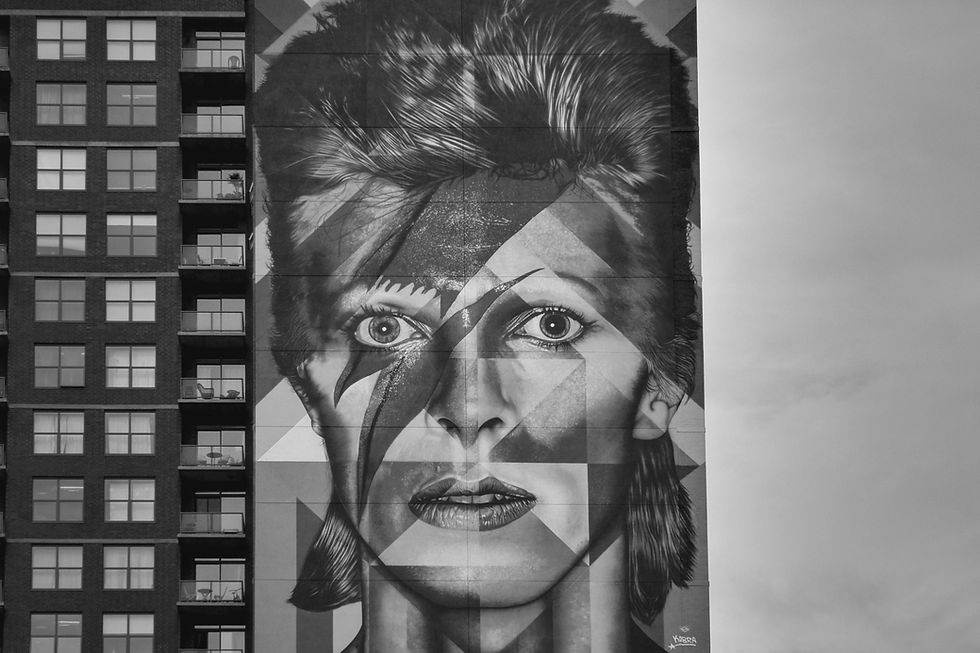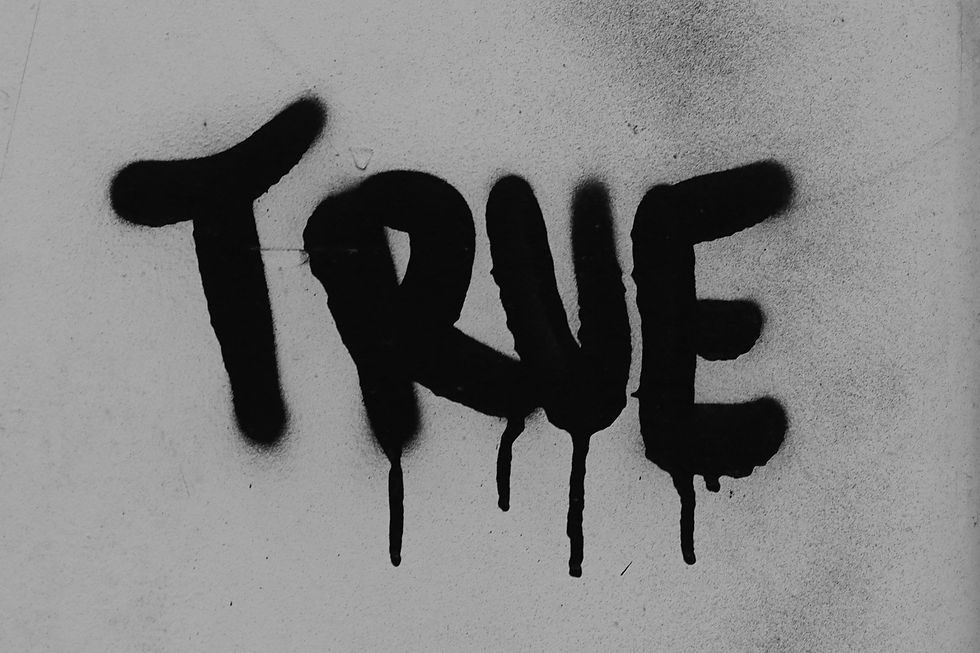Sam Altman, the dead internet theory, and what it means for business leaders
- Manelik Sfez

- Sep 8, 2025
- 6 min read
When OpenAI CEO Sam Altman admitted he was “starting to think” the dead internet theory might be true, the internet laughed. The irony was too sharp to miss: the man who put large language models into the mainstream was now worried the web feels synthetic, flooded with bots and AI chatter.
But for business leaders, this isn’t a meme. It’s a warning shot. Altman’s hesitation signals something deeper: the internet has shifted from a human-centered network into a machine-driven environment. And that has direct consequences for visibility, trust, and growth.
What is the Dead Internet Theory and why is Sam Altman referring to it?
The term Dead Internet Theory wasn't invented by Sam Altman; it comes from a 2021 forum post on Agora Road, which argued that most online activity is no longer real people but automated bots and AI-generated content. The theory spread because it captured a feeling: the internet looks alive, but something about it feels hollow, repetitive, less authentic.
To be clear: the theory isn’t literally true. There are still billions of humans online. But the signal-to-noise ratio has collapsed. Human presence is increasingly drowned out by automated content farms, fake engagement, and algorithmic repetition.
The data backs this up:
Bots dominate traffic: Imperva’s 2023 report found that 47.4% of all internet traffic came from bots—the highest figure ever recorded.
Fake accounts multiply: Facebook regularly removes hundreds of millions of fake profiles. X (formerly Twitter) remains riddled with automated accounts.
AI content floods search: Entire websites now churn out thousands of AI-written articles a month, with little or no human oversight.
The result—as you've probably noticed by now—is a web that looks busy, but much of the activity is synthetic.
Why this matters for business leaders
Executives can dismiss conspiracy forums. They can’t dismiss the structural shift.
Social feeds are unreliable. Engagement numbers are inflated by bots and recommendation loops. You can’t read customer demand from “likes” anymore.
Search results are polluted. Google SERPs are stuffed with low-quality AI filler, making it harder for your potential customers to find trustworthy answers.
Platforms are complicit. Meta openly deploys AI profiles. Elon Musk promotes Grok, an AI chatbot embedded in X. Corporations themselves are shaping the web with synthetic agents.
Customers feel it. They encounter repetition, shallow content, and uncertainty about what’s real. This drives a trust deficit—a growing skepticism of brands and their claims.
For businesses, the implication is stark: it’s harder than ever to stand out, and harder still to be trusted.
From SEO to AEO: the real shift under the surface
For two decades, SEO (Search Engine Optimization) was the backbone of digital visibility. You optimized for keywords, backlinks, and human clicks. Success meant appearing on the first page of Google.
That game is ending.
AI-driven discovery—ChatGPT, Perplexity, Google’s AI Overviews—doesn’t show “10 blue links.” It gives one synthesized answer. And unless your business is in the data those systems rely on, you’re invisible.
Sam Altman himself admits ChatGPT is evolving beyond being a “Google replacement.” It’s not a search engine. It’s an answer agent.
This is where Answer Engine Optimization (AEO) comes in. Unlike SEO, AEO isn’t about gaming algorithms. It’s about supplying structured, machine-readable clarity:
Explicit statements of who you are, what you offer, and how you compare.
FAQ blocks and schema markup that AI agents can parse instantly.
Clear, quotable sentences that can be dropped directly into an AI response.
Example: If someone asks, “What’s the best accounting firm in Geneva?”, an AI won’t scan 10 keyword-loaded blogs. It will surface brands that have already given it structured, authoritative information.
This is the strategic pivot. Businesses that continue to invest only in SEO risk vanishing into the synthetic fog.

The risk: invisibility in a synthetic web
The dead internet theory, if you strip it of paranoia, points to one very real business risk: invisibility.
SEO tactics lose power. As AI systems take over discovery, keyword tricks and backlink farms become irrelevant.
Metrics distort reality. Likes, impressions, and clicks are increasingly artificial—driven by bots, not customers.
Decision-making suffers. Executives relying on AI summaries of markets may unknowingly read AI-generated content recycled in a loop. That’s not intelligence. That’s distortion.
The danger is not that the internet dies. It’s that your business dies inside the internet—unseen by humans, ignored by AI.
The opportunity: becoming a trusted signal
But every shift brings opportunity. In a synthetic flood, the scarce resource is authenticity.
Brands that prove they are real, credible, and authoritative will command attention when others drown in noise. Here’s what that looks like in practice:
1) Design for AI discoverability
Use structured data (schema.org, FAQPage, Product markup).
Publish clear brand statements: who you are, what you do, who you serve.
Create comparison pages (you vs. alternatives) that AI agents can quote directly.
2) Show human authority
Put executive names on articles.
Record short videos where leaders explain decisions.
Publish authentic commentary that signals accountability.
3) Use AI internally, not externally
Automate workflows, personalization, and analytics.
But don’t outsource your voice to generic AI copy. Outward communication must carry your distinct authority.
4) Build owned channels
Newsletters, private communities, structured websites.
Don’t depend solely on social media platforms where bots dominate.
5) Shift KPIs
Track mentions in AI systems (ChatGPT, Perplexity, Google AI Overviews).
Measure citations in answer engines, not just rankings in search.
In short: in a world where machines surface answers, you must be the answer worth surfacing.
Where this is heading
The trajectory is clear: an AI-to-AI internet where bots generate and consume most of the content. Humans will still be present, but increasingly mediated by AI layers.
In that world, human signals—authorship, authority, trust—will be more valuable, not less.
The dead internet theory isn’t really about death. It’s about transformation. The businesses that adapt will own the scarce currency of the next decade: authenticity.

The executive takeaway
The internet hasn’t died. It has changed into something less human-centered and more synthetic.
For business leaders, the implications are direct:
SEO as you knew it is collapsing.
Visibility now depends on AEO: structuring information so AI agents recognize, quote, and recommend you.
Customers are skeptical, so visible human signals of trust matter more than ever.
Acting early gives you advantage. Waiting risks irrelevance.
The internet may feel “dead,” but for businesses willing to adapt, it’s a chance to be unmistakably alive.

About the author
Manelik Sfez, founder of the Swiss brand consultancy Ultrabrand, brings 25 years of international business, marketing, and brand strategy experience to the table. He has worked with some of the world’s most iconic brands throughout his career. From luxury goods to global retail, financial services and technological and industry giants, he has guided companies through brand-led transformations that have enabled significant business growth.
FAQ
What is the dead internet theory in simple terms?
It’s the idea that most online activity is now bots and AI, not humans. The web looks alive but is increasingly synthetic.
How much of the internet is bots today?
Almost half of all traffic: 47.4% according to Imperva’s 2023 report.
Why is Sam Altman linked to this debate?
He acknowledged the theory might be true, even though his own work (ChatGPT, LLMs) accelerated the rise of AI-generated content.
What is the difference between SEO and AEO?
SEO optimizes for human search engines. AEO optimizes for AI agents and answer engines that give direct responses instead of lists of links.
Will AEO replace SEO entirely?
Not overnight. SEO still has some relevance, but its role is shrinking as AI takes over discovery. AEO is already critical for visibility.
Does SEO still matter for businesses in 2025?
Yes, but less. If you depend only on SEO, you’re exposed. AEO must be part of your strategy.
How can my company stay visible in an AI-driven internet?
Provide structured, machine-readable clarity, and prove your authenticity with human authority signals.
Why is authenticity critical in a synthetic web?
Because in a world of noise, trust is the scarcest and most valuable commodity.
Sources
Search Engine Journal: Sam Altman: ChatGPT Has Evolved Beyond a Google Replacement (Jun 2025)
SearchBloom: Sam Altman Says the AI Bubble Is Popping (Aug 2025)
The Guardian: Techscape: Artificial Internet and Bots (Apr 2024)
UNSW: The dead internet theory makes eerie claims… (May 2024)
Reddit threads on r/wikipedia and r/technology (2023–25)



Comments